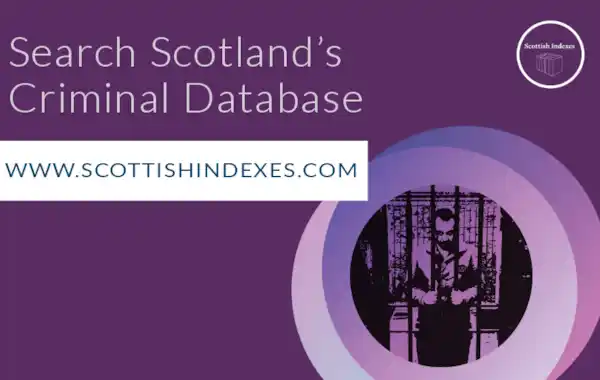31 January 2022
|
Find out how to use Scotland's Criminal Database to uncover fascinating stories about your Scottish ancestors.
For many of us, family history is about more than collecting names and dates. We want to uncover our family stories. You can do exactly that using Scotland's Criminal Database on www.scottishindexes.com.
Even if our ancestors spent just one night in prison, we can learn a lot about them from criminal records. For example, the census may tell us our ancestor was born in Ireland. A prison register, though, may tell you exactly where in Ireland. A birth certificate gives you essential names and dates but a prison register may tell you about the scars or tattoos your ancestor had.

Example of evidence found in High Court records. Papercut of footprint found at the scene of a sheep stealing

Example of prison record. Showing the ‘marks’ of prisoners including ‘marks of flogging on his back’
Scottish Indexes are also indexing court records that can reveal fascinating details. We may find the evidence presented at court or a witness statement given by one of our ancestors. The database also includes victims of crime, so it’s not all about finding criminal ancestors.
Scotland's Criminal Database opens up long-hidden stories. For example, in the records of Duns Sheriff Court (SC60/53/2) we can read about Robert Dickson. Between November 1859 and February 1860, Robert “fraudulently represented and pretended” to a man named Andrew Kyle, that he had, “in consequence of the death of an uncle in America, succeeded, or was about to succeed to a large fortune, consisting of several thousand acres of land, and twenty-two thousand pounds or other large sum of money.” Unfortunately, poor Andrew fell for the swindle and advanced Robert money which was, of course, not repaid.
The index is free to search, with no login required. The search features are comprehensive and user-friendly, allowing you to use wildcards and ‘alternative surnames’ to increase the chances of finding your ancestors. This is just one of the record sets on Scottish Indexes that open up historical records and add detail to your family story.








